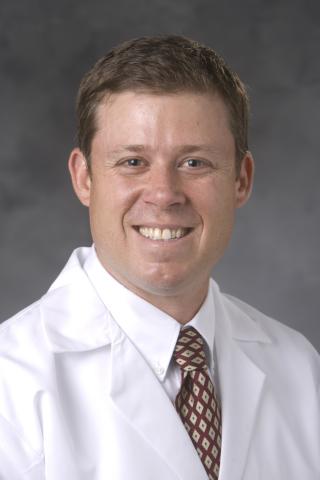A couple of months ago, during another night of catching up on my Maestro in-basket work, I came across Apollo 13 on TV and stopped to watch the movie I have seen more times than I can count.
One scene that stays with me on multiple viewings is when a group of NASA engineers is asked to use spare and random parts to create a device to remove excess carbon dioxide and save the astronauts’ lives. In the end, the engineers do succeed in building the device and, with the help of the entire team, they return the Apollo mission to Earth safely.
Being a family physician—trying to care for patients with complex physical, mental and social needs within a 20 minute visit—often reminds me of being asked to fix the damaged Apollo 13 spacecraft on my own, without a team of engineers and lacking all the necessary parts.
I applied for the Duke Primary Care Transformation Fellowship as a mid-career family physician looking for a fresh perspective after 10 years at Duke Primary Care. A mentor once suggested I think of my career less as a ladder to climb and more as the flight of a bumblebee moving between different interests; she suggested the bumble bee was typically more content than the ladder-climber at the end of her career.
I had climbed the ladder for most of my professional life and now wanted to see what it felt like to be the bee. Although I certainly knew of the vast resources and amazing ideas percolating around Duke, I wanted to experience and actively participate in the way our health care system tries to address larger issues in health care and our community. I also wanted to advocate for better integration of mental health care resources—from depression/anxiety care to substance abuse treatment—in the primary care setting where patients often first present with these concerns and providers can leverage their relationships with their patients to develop successful treatment plans.
During the two-year fellowship, my journey has evolved from being part of a team integrating licensed clinical social workers into our primary care clinics, to working to create team-based approaches to address mental health needs in our chronic disease populations, to enhancing mental health screening within high-risk groups in our clinics. Being a fellow has also given me the opportunity to network with diverse entities within our health care system. I connected with the Duke Forge data analytics team to look at how well our health care system screens and treats common mental health conditions, discussed EHR-based solutions to make screening easier through the Duke Office of Clinical Research, and liaised with the Duke Population Management Health office to better understand how it works to connect patients with health needs related to social drivers to appropriate community-based resources.
The transformational work of the fellowship can be humbling as you learn to develop new skills and navigate within a complicated health care system with competing priorities. I have also come to the realization that change most often occurs in small, incremental steps when working to improve our health care system. While we may not be trying to solve as daunting a task as returning a damaged spacecraft to Earth, we can leverage work with our own team of health “engineers,” fitting spare parts into innovative designs to solve complex issues for our patients and communities.
Brian Shaner is a fellow with the Primary Care Transformation Fellowship Program. Email brian.shaner@duke.edu with questions.
Editor’s note: Blogs represent the opinion of the author, not the Department of Family Medicine and Community Health, or Duke University.
